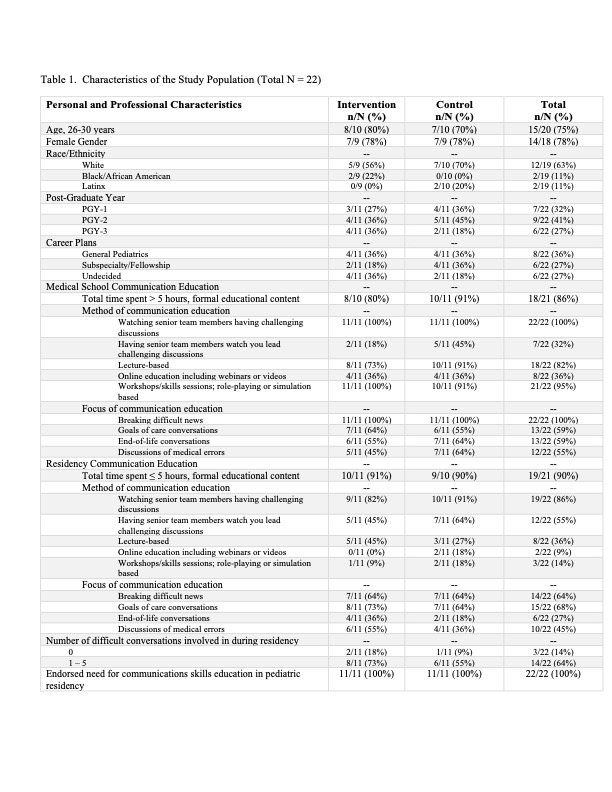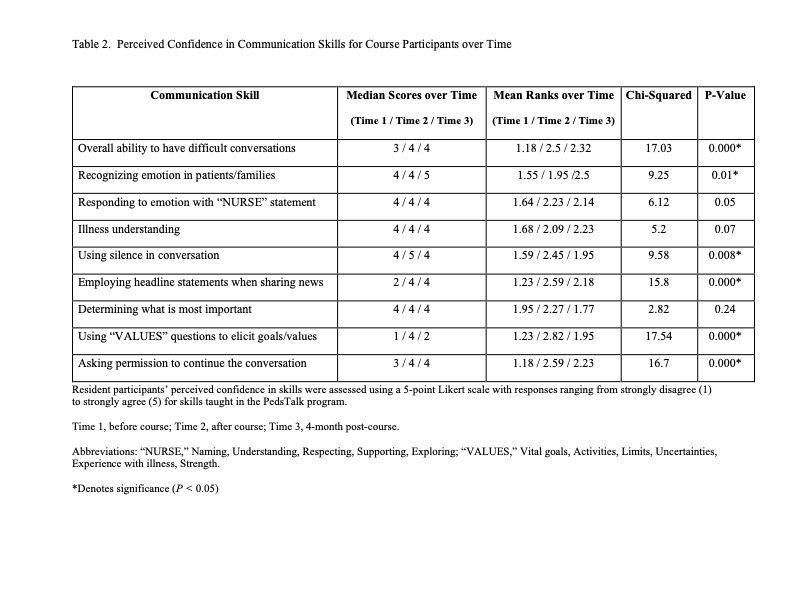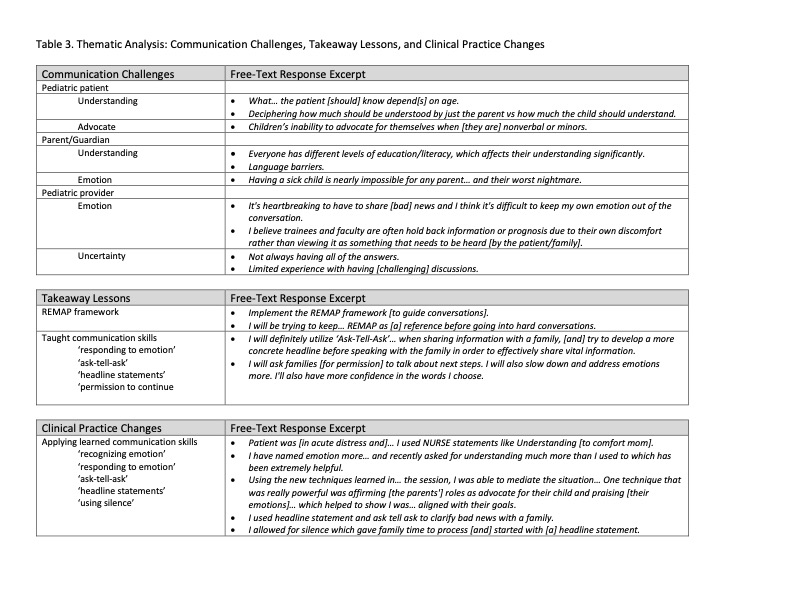Medical Education: Resident
Medical Education 7: Resident 2
551 - PedsTalk: A Pilot Communication Skills Education Course for Pediatric Residents
Saturday, April 29, 2023
3:30 PM - 6:00 PM ET
Poster Number: 551
Publication Number: 551.229
Publication Number: 551.229
Samuel Kase, Kravis Children's Hospital at Mount Sinai, Icahn School of Medicine at Mount Sinai, New York, NY, United States; Caroline Christianson, The Mount Sinai Kravis Children's Hospital, New York, NY, United States; Katherine Guttmann, Icahn School of Medicine at Mount Sinai, Larchmont, NY, United States; Lindsay A. Dow, Icahn School of Medicine at Mount Sinai, New York, NY, United States; Andrea Weintraub, Icahn School of Medicine at Mount Sinai, New York, NY, United States

Samuel Kase, MD (he/him/his)
Resident Physician
Kravis Children's Hospital at Mount Sinai, Icahn School of Medicine at Mount Sinai
New York, New York, United States
Presenting Author(s)
Background: Communication skills are critical to pediatric practice, but few pediatric residency programs provide formal communication skills education. Pediatric residents often lack confidence in these skills.
Objective: We hypothesized that a simulation-based communication skills course would improve resident confidence in skills during serious illness conversations with patients and families.
Design/Methods: In collaboration with multi-discipline VitalTalk-trained faculty, we developed PedsTalk, a communication skills course for pediatric residents based on VitalTalk framework. In PedsTalk, faculty and peers offered real-time coaching during simulation sessions with actors. Resident participants reported confidence in nine communication skills using a 5-point Likert scale before, immediately after, and 4-months after course participation, with resident non-participants serving as controls. Responses were analyzed using Friedman tests and Wilcoxon Signed Rank tests. Thematic analysis was conducted to identify themes among free-text responses.
Results: Twenty-seven pediatric residents participated in PedsTalk, 11 of whom completed survey assessments at all timepoints. Eleven non-course participants served as controls. Over time, participants’ confidence in the following communication skills were retained or significantly improved: ‘difficult conversations’ (p< 0.000), ‘recognizing emotion’ (p< 0.01), ‘using silence’ (p< 0.008), ‘headline statements’ (p< 0.000), eliciting “VALUES,” (p< 0.000), and asking ‘permission to continue’ (p< 0.000). Over time, controls had significant improvements in confidence in two skills: ‘headline statements’ (p< 0.014) and eliciting “VALUES” (p< 0.031). Thematic analysis revealed that participants learned key communication skills from PedsTalk and subsequently utilized these skills in clinical practice.
Conclusion(s): Through the application of the VitalTalk framework, PedsTalk is a novel, formal approach to communication skills education in pediatric residency. Participation improved residents’ confidence in six communication skills, including overall confidence in having ‘difficult conversations.’ While confidence in some communication skills may naturally develop through routine clinical experiences, PedsTalk further enhances communication skills training among trainees. PedsTalk may serve as a model initiative for institutions looking to address communication education among pediatric residents.



